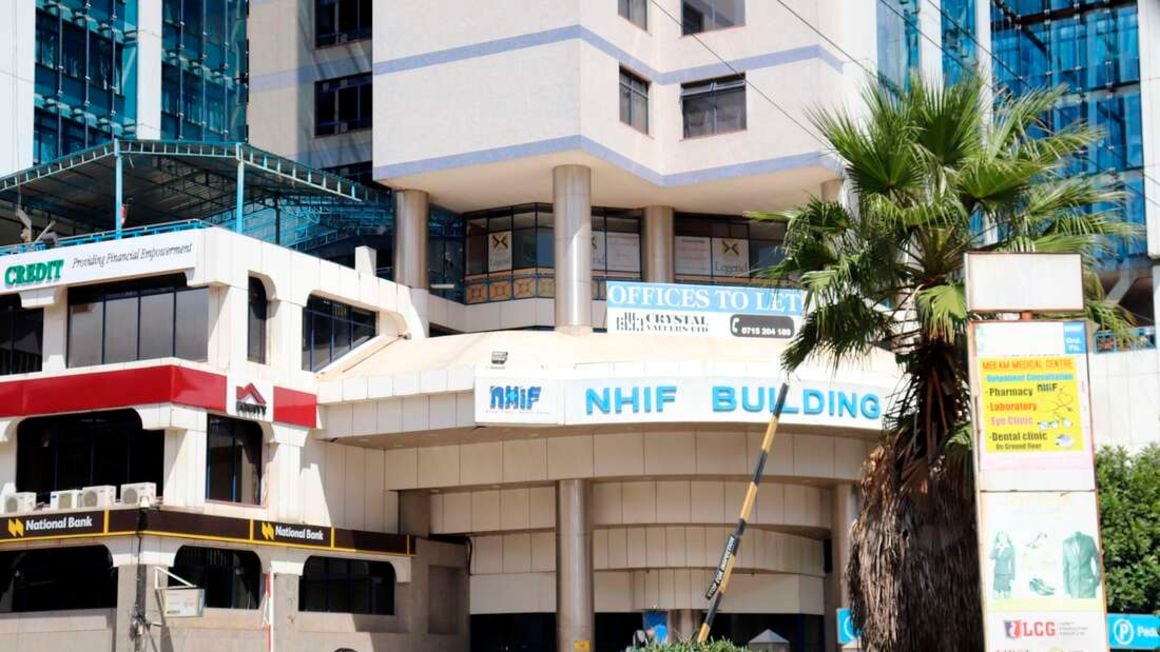
NHIF Building in Upper Hill, Nairobi. FILE PHOTO | NMG
Summary
- The State-run medical scheme says compulsory membership to NHIF and the push for employers to match workers’ monthly contributions to the fund will boost income and allow it to pick additional medical bills.
- Doubling the Sh1,700 that top contributors make to the fund ranks high on the list of targeted changes to the NHIF Act, which also seeks to make all adults make compulsory monthly payments to the insurer.
National Hospital Insurance Fund (NHIF) will enhance cover for non-communicable diseases like heart ailments, cancer and diabetes if MPs approve higher contributions in the race to provide insurance for all adults.
The State-run medical scheme says compulsory membership to NHIF and the push for employers to match workers’ monthly contributions to the fund will boost income and allow it to pick additional medical bills.
Doubling the Sh1,700 that top contributors make to the fund ranks high on the list of targeted changes to the NHIF Act, which also seeks to make all adults make compulsory monthly payments to the insurer.
NHIF chief executive Peter Kamunyo says that passing the Bill into law will hand the Fund more premiums, which will be passed to members through enhanced covers.
Kenya is rolling out universal health care (UHC) but NHIF is alarmed that 54 percent of registered members are not paying premiums, hurting its ability to collect enough money for paying hospital bills.
“As we scale up towards UHC, we are looking at amending some of the benefits to be able to address the growing needs especially in the areas of non-communicable diseases because they cost a little bit more than normal primary care products,” said Dr Kamunyo.
“So the packages are going to change slightly under UHC but we have to ensure the financial muscles are able to support this.”
NHIF last reviewed its packages in 2015 covering outpatient and inpatient services such as consultation fees, laboratory tests, drugs, dental healthcare, surgery, radiotherapy, physiotherapy and midwifery services. The proposed upward review will be a win for patients given that many have had to turn to out of pocket payments to foot hospital bills after exhausting NHIF limits.
For instance, the NHIF cover for chemotherapy, radiotherapy, and brachytherapy for cervix and prostate cancer caters for up to 10 sessions in a year. Kidney dialysis is covered up to twice per week. The limits of the bill paid from the cover are determined by factors such as level of hospital and complexity of the procedure.
Kenya continues to bear the biggest burden of non-communicable diseases due to lack of awareness, misdiagnosis, late presentation to hospitals and the high cost of treatment.
A World Bank report released last year said Kenya is losing Sh230 billion annually on top seven non-communicable diseases (NCDs).


No comments:
Post a Comment